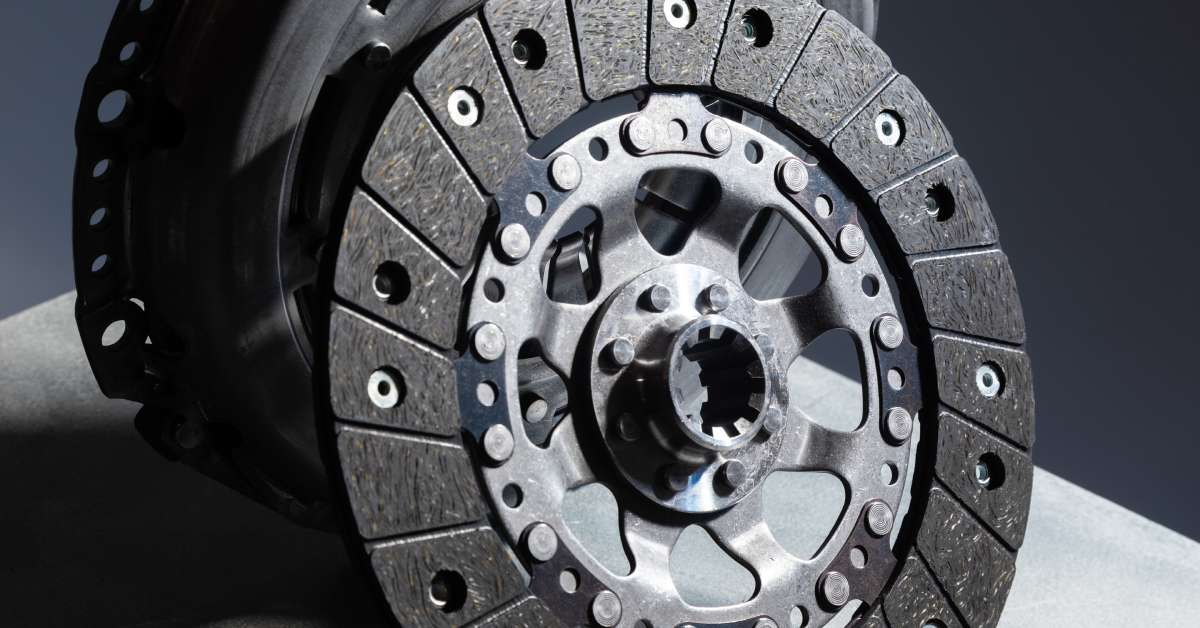How To Choose a Clutch for Your Style of Racing

Choosing a clutch can make or break your racing performance. Understanding the intricacies of clutch selection is essential for motorsport competitors and amateur racers. We’ll show you how to choose a clutch for your racing style and car.
The Critical Role of the Clutch in Racing
Every component of your vehicle plays a crucial role in a race; the clutch bridges the engine and the transmission to support a smooth transfer of power. An ill-suited clutch can lead to power loss, reduced performance, and even potential mechanical failures. Selecting the right clutch optimizes your vehicle’s performance and safety.

Common Clutches for Racing
Single-Disc Clutches
Single-disc clutches are popular among racers for their simplicity and reliability. They consist of a single friction disc that engages and disengages the engine’s power to the transmission. The main advantage of single-disc clutches is their straightforward design, which makes them easier to install, maintain, and replace than complex clutch systems.
Additionally, they provide a consistent and predictable performance. The downside is single-disc clutches have a lower torque capacity, which can limit their effectiveness in high-torque, high-performance racing. Single-disc clutches support racing styles that don’t demand extreme torque handling, such as club racing and some forms of rally racing. In these motorsports, their durability and ease of use shine.
Twin-Disc Clutches
Twin-disc (AKA dual-disc) clutches can handle high torque, making them ideal for high-performance racing applications. Twin-disc clutches feature two friction discs, which increase the surface area for torque transfer and improve clamping force. The primary advantage of twin-disc clutches lies in their ability to manage high torque loads without slipping, which translates to more efficient power delivery and quicker acceleration on the track.
However, the increased complexity of twin-disc clutches means they are more challenging to install and maintain and are more expensive than their single-disc counterparts. Despite these drawbacks, twin-disc clutches are great in professional racing environments, such as drag racing and circuit racing, where the demands on the drivetrain are extreme.
Factors To Consider When Choosing a Racing Clutch
Drivers have to consider many factors, from engine power to vehicle weight and installation, when choosing a clutch for their style of racing.
Engine Power and Torque
The clutch must manage the engine’s output, as high power and torque place great stress on the clutch components. Twin-disc clutches provide the necessary clamping force and heat dissipation to handle elevated loads without failing. Conversely, a clutch with insufficient torque capacity can cause premature wear, performance degradation, and even failure during racing. Matching the clutch’s specifications to the engine’s power and torque output is essential for optimizing performance, reliability, and safety on the track.
Vehicle Weight
Vehicle weight plays a significant role in clutch selection, as it directly influences the amount of stress on the clutch during acceleration and deceleration. Heavy vehicles require more force to get moving and slow down, which translates to greater demand on the clutch system.
Lightweight vehicles, on the other hand, place less strain on the clutch and allow for the use of clutches with low torque capacities, such as single-disc clutches. Accurately assessing your vehicle’s weight and understanding its impact on clutch performance is crucial for power transfer and reliability during races.
Durability and Longevity
When selecting a racing clutch, drivers can’t overlook durability and longevity. Frequent gear changes, high torque loads, and extreme operational conditions cause intense wear on clutches. A durable clutch ensures consistent performance over extended periods and reduces the need for frequent replacements.
Longevity in a clutch translates to reliable operation during racing, where mechanical failures can be disastrous. A clutch with high-quality materials and superior construction can withstand the rigors of racing.
Cost and Budget
Racing clutches come in a range of prices, and your choice might hinge on the specific requirements of your racing style and vehicle. High-performance clutches, such as twin-disc models, tend to be expensive due to their advanced engineering, superior materials, and enhanced torque handling capabilities.
However, a less expensive single-disc clutch might suffice for less demanding racing environments. Balancing your budget with the performance needs of your vehicle is essential to avoid overspending while ensuring reliability and a competitive edge.
Installation and Maintenance
A well-fitted, properly installed clutch supports efficient power transfer from the engine to the transmission, which is crucial for your performance on the track. Incorrect installation can lead to issues such as slipping, overheating, and premature wear that undermine your performance.
Easy access and maintenance of the clutch are big things to think about. Some high-performance clutches require more complex installation and frequent maintenance, which could incur high costs and eat up your time. Choose a clutch that balances ease of installation and maintenance with your performance needs. If you want a complex twin-disc clutch, you must also consider where to find twin-disc clutch parts for repairs and maintenance.

Matching Your Clutch to Your Racing Style
Drag Racing
Drag racing demands high power and torque, so you need a clutch with excellent torque handling capabilities. Twin-disc clutches are ideal for drag racing because they can manage the extreme stress on the drivetrain during launches and gear shifts. The superior heat dissipation of twin-disc clutches also makes them perfect for this adrenaline-fueled form of racing.
Road Racing
Road racing covers a broad spectrum of racing styles, from circuit racing to hill climbs and endurance races. These types of races require consistent performance over extended periods, making durability and reliability crucial considerations.
Single-disc clutches are common in road racing due to their simplicity, predictability, and ease of maintenance. For high-performance vehicles or longer races that demand greater torque handling capabilities, twin-disc clutches may be better.
Rally Racing
Varying terrains and conditions characterize rally racing, so your vehicle needs a versatile clutch that can handle different levels of power and torque output. Single-disc clutches are common in rally racing vehicles because they offer durability and ease of use on rough terrain. However, twin-disc clutches may provide an edge to professional rally drivers seeking the ultimate in performance due to their enhanced torque handling and heat dissipation capabilities.
Find Racing Clutches of All Kinds at Clutch Masters Industries
Whatever type of racing clutch you need for your vehicle, you’ll likely find it at Clutch Masters Industries! Our wide selection of high-performance clutches is ideal for all manner of racing cars, from drag racers to rally cars and more. Browse our inventory to find your ideal racing clutch, or contact our staff to speak with an expert today!


